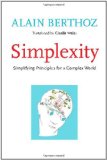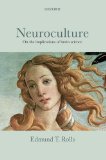new book by Paul Churchland – ‘Plato’s Camera: How the Physical Brain Captures a Landscape of Abstract Universals’
January 28, 2012
Plato’s Camera: How the Physical Brain Captures a Landscape of Abstract Universals by Paul M. Churchland (MIT Press, 2012)
In Plato’s Camera, eminent philosopher Paul Churchland offers a novel account of how the brain constructs a representation–or ‘takes a picture’–of the universe’s timeless categorical and dynamical structure. This construction process, which begins at birth, yields the enduring background conceptual framework with which we will interpret our sensory experience for the rest of our lives. But, as even Plato knew, to make singular perceptual judgments requires that we possess an antecedent framework of abstract categories to which any perceived particular can be relevantly assimilated. How that background framework is assembled in the first place is the motivating mystery, and the primary target, of Churchland’s book.
His account draws on the best of the recent philosophical literature on semantic theory, and on the most recent results from cognitive neurobiology. The resulting story throws immediate light on issues that have been at the center of philosophy for at least two millennia, such as how the mind represents reality, both in its ephemeral and in its timeless dimensions.
Unexpectedly, this neurobiologically grounded account of human cognition also provides a systematic story of how such low-level epistemological activities are integrated within an enveloping framework of linguistic structures and regulatory mechanisms at the social level. As Churchland illustrates, this integration of cognitive mechanisms at several levels has launched the human race on an epistemological adventure denied to all other terrestrial creatures.
Google books preview:
Comments (1) - cognitive science,new books,philosophy of mind







